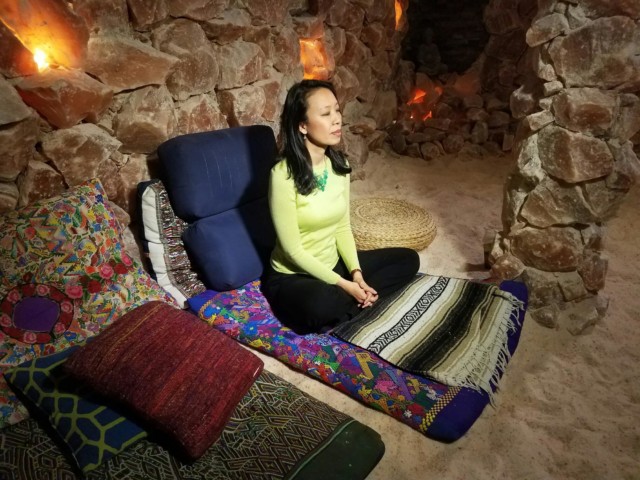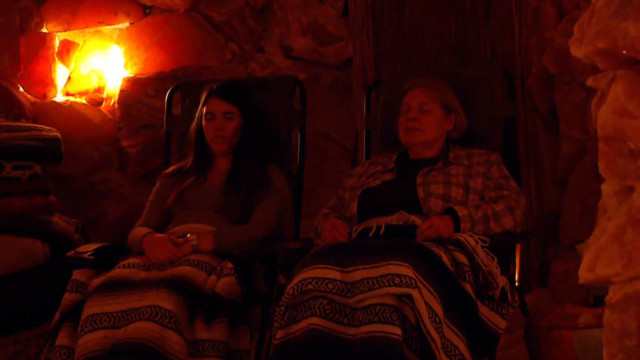They say fresh air is good for the health. But more people are choosing to breathe in salt with the help of “salt rooms or caves.”
They exist naturally in some parts of the world. And now, they’re being recreated where they don’t including China and the United States.
CGTN’s Frances Kuo visited one in the Washington, D.C. area for a look and a whiff.

Forgot fresh air. More people are turning to salt to improve their health.
They say fresh air is good for the health. But more people are choosing to breathe in salt with the help of “salt rooms or caves" CGTN's Frances Kuo visited one in the Washington, D.C. area for a look and a whiff.On the outside, the building in a Washington, D.C. suburb looks pretty ordinary.But, once you enter, it’s hard to look away.
“I would say mythical, something out of a fantasy,” said Alexi Munoz, a first-time customer.
Nearly 20 tons of salt line the walls and cover the floor at the Bethesda Salt Cave. All of it is imported from the depths of the Himalaya Mountains where salt caves naturally form from deposits millions of years old.
“They’re actually hard mining all the rocks so it’s coming out intact with all the minerals,” explained owner Janine Narayadu.
Those minerals are found in the human body. They’re hailed by the business owners as natural anti-bacterial and anti-inflammatory agents, clearing toxins in the lungs and skin. They say they’re ideal for those suffering from colds, flus, bronchitis and skin conditions.
The temperature in the cave is regulated at about 20 degrees Celsius, mimicking a natural salt cave.

CGTN’s Frances Kuo takes a breath of salt air at the Bethesda Salt Cave.
“When you’re breathing it in, it’s lining the cilia of the sinuses and inside the nose,” said Narayadu. “The salt disinfects and clears out impurities, allergies and bacteria that we can’t get out when we cough.”
Since she opened the cave more than two years ago, Narayadu said she’s had 26,000 clients come through. One regular customer, Pat Jayne, said she was hooked from the start.
“The first time I was here, I was in the middle of a major allergy attack,” said Jayne. “There were a lot of tissues, and I never used one of them. It just took my allergy attack away.”
Another regular, Randi Chasen, comes every other week for the standard 45-minute sessions. This time, she’s here to clear a cold.
“I was sniffling when I walked in here and just sitting in here, it does dry it up,” said Chasen.
Salt caves aren’t just becoming popular in the United States, but they’re also popping up in China where residents in polluted areas are looking for some relief.
An Italian company, Salus Per Salis, debuted the first salt therapy center in Shanghai two years ago.
“Our body could be considered like a machine or like a car. A car can work properly if you have clean filters,” explains Tiziana Richiardi of Salus Per Salis. “Our body is exactly the same. Our body’s filters are the lungs. If you keep the lungs clean, all the rest of the body is going to be healthy.”
Customers there said they have seen a difference.
“I think it’s really improved my health, like helping me sleep better,” said Wang Ting, a customer.
“It relaxes your whole body. And I can tell I can breathe easier,” said customer Gui Fang.
Salt therapy is not intended to be a substitute for seeing a doctor. And there is not much scientific research supporting or disputing the benefits. But that’s irrelevant to salt cave loyalists.
Yemeng Chen discusses traditional and non-traditional medicine
For more on traditional and non-traditional medicine, CGTN’s Asieh Namdar talked with Yemeng Chen, president of the New York College of Traditional Chinese Medicine.
 CGTN America
CGTN America

